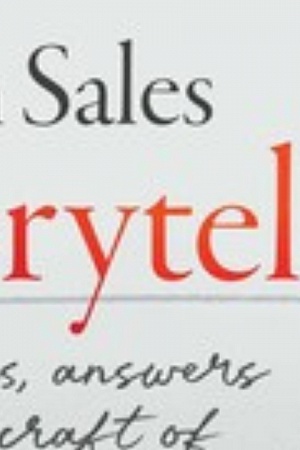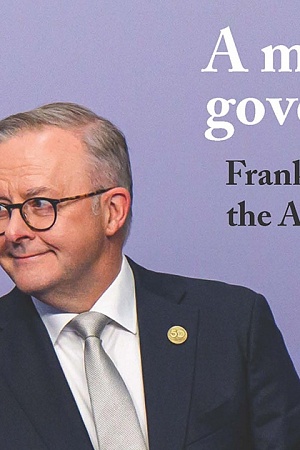Ming’s Legacy
Australian historians admire Robert Menzies. Pardon? Aren’t historians, like the rest of the Australian academy, left-wing propagandists? Don’t they all loathe the prime minister’s political role model? Regardless of how historians view Menzies’ attitudes to the monarchy, appeasement, the middle class and the Communist Party, they have reached a consensus on one point: Menzies played a significant role in the consolidation and expansion of Australia’s university sector. When Ben Chifley laid the foundation stone of the Australian National University during the election year of 1949, Menzies refused to politicise the initiative; as prime minister in 1956, he appointed a committee to inquire into the plight of Australian universities and insisted on the provision of life-giving funds by the Commonwealth government under conditions which preserved university autonomy. As his biographer, A.W. Martin, notes, ‘Menzies’ support of universities, and the university life, was never at any time in doubt’.
In 1915 the Students’ Representative Council had recommended to the University of Melbourne Council that Menzies, then a third-year Law student, should be the 1916 editor of the Melbourne University Magazine. At the University of Sydney, another Law student, H.V. Evatt, was editing the university’s magazine, Hermes. The boys from Jeparit and Maitland, born months apart, threw themselves into university life, contributing poems and articles to the publications they edited, involving themselves in debating, promoting sport and acknowledging war service. They were to be foes at the Bar and in parliament until 1965, when Menzies was a pallbearer at Evatt’s funeral.
Many other student editors have also become notable journalists, writers, and polemicists. The roll-call includes Cyril Pearl, Geoffrey Blainey, Donald Horne, Keith Windschuttle, Germaine Greer, Clive James, Les Murray, Frank Moorhouse, Laurie Oakes, Morag Fraser, Henry Rosenbloom and Kathy Bail. Numerous writers and politicians were to be published for the first time in student publications.
This tradition, already under threat, is in danger of disappearing. The Commonwealth government’s Voluntary Student Unionism (VSU) legislation, passed in 2005 and taking effect from 1 July 2006, prevents universities from collecting compulsory levies not directly related to students’ courses. The government refused to separate funding for represent-ative student bodies from sports associations, clubs and other services. These services include publications, whose fate was somewhat overlooked as the Opposition parties and members of the National Party focused on the predictably Australian preoccupation with sports facilities, and with services such as child care and legal advice.
The impact on student publications of the Commonwealth government’s legislation has been swift and severe. Pulp (Southern Cross) and Harambee (Edith Cowan) have ceased. Swinburne has withdrawn funding for the weekly Swine, which is now considering electronic publication. The university initially agreed to fund the official student magazine, Tabula Rasa, but has since withdrawn funding; the print run has been halved and the use of colour minimised. The circulations of Honi Soit (Sydney) and Vertigo (UTS) have also been cut, and Vertigo’s editors have decided not to argue for their full honoraria. The University of Queensland’s Semper Floreat has gone online.
The student media’s attitude to advertising might best be described as ambivalent. Many publications regard not running advertising as critical to their autonomy. Swinburne’s student union believes that it may have to overturn its policy that no more than twenty-five per cent of Tabula Rasa should consist of advertising. Semper Floreat’s ‘sell out’ edition reported that ‘sometimes no one wants to buy your soul, even if it is going cheap’: multinationals like Coca Cola and News Limited had declined to sponsor a page at $1000 a pop.
VSU has pitted university administrations against student unions, unions against newspapers, and newspapers against their natural constituents. There have been debates about why already straitened universities have chosen not to guarantee financial support for newspapers, as they have with some other services. But the very act of accepting this support may well lead to questions about whether newspapers will still be free to criticise university administrations; Pulp’s forthcoming replacement, to be produced in partnership with the SCU School of Arts and Social Sciences, will require university approval before going to press. Some student unions have been lambasted for the alacrity with which they elected to axe or prune newspapers.
This last point might attest to the fact that many students are now so busy juggling paid employment with their studies (a trend that will presumably accelerate with rises in HECS and full-fee paying courses) that they do not have the time to embrace extracurricular university activities. Student publications, as well as associations, are very different from the days of Menzies and Evatt. It was not until after World War I that political clubs and radical students emerged at Australian universities; decades later, editors came to be directly elect-ed and paid stipends by student unions. As Blainey has remarked, the history of student journalism ‘is a series of oscillations from left to right’. Publications were to be-come political weapons, blending passion, erudition and sat-ire to fight the battles of the Cold War and the Vietnam War, and to flay apartheid and censorship. Full-year courses meant that students, especially in the Arts, had fairly leisurely lives and the time to embrace politics and journalism. Now the very notion of communities centred on university life has been all but dismantled. The editor-in-chief of Deakin University’s Crossfire Magazine feels ‘like a slave to an organisation that is now about counting money and nothing else’.
John Howard often speaks of the need for better education in civics and history. Perhaps he should read more about Menzies.











Leave a comment
If you are an ABR subscriber, you will need to sign in to post a comment.
If you have forgotten your sign in details, or if you receive an error message when trying to submit your comment, please email your comment (and the name of the article to which it relates) to ABR Comments. We will review your comment and, subject to approval, we will post it under your name.
Please note that all comments must be approved by ABR and comply with our Terms & Conditions.